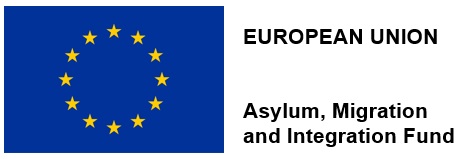In This Section
Introduction
Case Processing Unit
Cases considered by the Case Processing Unit
If you are granted permission to remain
Arrangements Unit
Being subject of a Deportation Order
Can my deportation order be revoked?
Transfers in line with Dublin III Regulations
Removals
What will happen if you do not present to GNIB?
Information about legal representatives
Contact us

Introduction
Repatriation Division is divided into two areas:
Case Processing Unit
The main functions of the Case Processing Unit are to consider and decide on:
Cases considered by the Case Processing Unit
The following cases are considered:
This notification is also sent to the person’s legal representative (solicitor or a barrister) if they are known. The notification advises such people about the options available to them at that point in time. These options are to:
All cases that are dealt with under the provisions of Section 3 of the Immigration Act, 1999 (as amended) are considered on their individual merits. In each case, the representations (if any) submitted are examined having regard to the following factors set out in Section 3 (6) of the Immigration Act, 1999 (as amended).
These factors are:
A decision is made by the Minister for Justice as to whether the person should become the subject of a Deportation Order or if, instead, a Permission to Remain temporarily in the State should be granted.
If you are granted permission to remain
If you are granted permission to remain in the State, we will write to tell you and your legal representative, if we know their details. This letter will tell the person about:
Arrangements Unit
The main functions of the Arrangements Unit are to:
The Arrangements Unit works closely with the Garda National Immigration Bureau (GNIB) to arrange deportations, Dublin III Regulation transfers and removals.
Being subject to a Deportation Order
Where a person becomes the subject of a Deportation Order, this order will be served on the person in question. We will send you a service notification letter. This letter states that, by law, you must present yourself at the Office of the Garda National Immigration Bureau (GNIB) on a specified date and time to make arrangements for your deportation from the State. The GNIB will enforce the order.
Can my deportation order be revoked?
You may complete the following Form 3.11 to ask the Minister to consider revoking your deportation order, pursuant to the provisions of section 3(11) of the Immigration Act 1999 (as amended).
All representations and documentation submitted on this form should set out any new or changed circumstances that were not previously presented to the Minister. You must also complete a criminal declaration form.
Both forms must be sent either by email to repatadmin@justice.ie or by post to
Repatriation Division
Immigration Service
Department of Justice
13-14 Burgh Quay
Dublin 2
D02 XK70
Ireland.
Once your application is processed, you will be informed of the outcome of your request.
If your application is successful, you will receive a letter stating that your deportation order has been revoked along with a copy of the revocation order. If you are currently residing in the State and do not hold an alternative immigration permission, you will also receive a letter granting you permission to reside in the State.
In the meantime you remain legally obliged to comply with any reporting requirements placed on you by the Garda National Immigration Bureau.
Transfers in line with Dublin III Regulations
We will send you a presentation letter to say you must present yourself to the Garda National Immigration Bureau on a specified date and time to make arrangements for your transfer to the responsible EU member state. The GNIB will enforce the order.
Removals
This applies to EU nationals and comes under the European Communities (Free Movement of Persons) Regulations 2015. When we receive a removal application from GNIB, we must decide whether to issue a proposal to make a Removal Order and Exclusion Order (excluding someone from the State for a period of time) in line the law. (Regulation 23 of the European Communities (Free Movement of Persons) Regulations 2015.)
If you are served with a proposal to make a Removal Order and Exclusion Order, you are entitled to send in written representations against the making of the orders. We will consider these written representations fully before we decide whether to make a Removal Order and Exclusion Order.
In deciding, we will consider:
We will serve the Removal Order and Exclusion Order on you. The GNIB will enforce the orders.
What will happen if you do not present to GNIB?
If you do not present yourself to the Garda National Immigration Bureau on the specified date and time, we will take this to mean that you are evading your deportation, transfer or Removal Order. You will immediately become liable to arrest and detention until your deportation, transfer or removal from the State.
Information about legal representatives
Under data protection law, we cannot correspond with your legal representative without your written consent to allow your legal representative to act on your behalf.
In most cases, we will not supply a copy of the papers on your file to your legal representative, as we will have already provided all relevant documentation to you and your legal representative at earlier stages of the process. This also applies if you or your legal representative files a request under the Freedom of Information Act.
If you change your legal representative, the new legal representative should get the relevant papers from the original legal representative rather than requesting a copy from the Department of Justice.
Contact us
Repatriation Division
Immigration Service Delivery
Department of Justice
13-14 Burgh Quay
Dublin 2 D02 XK70
Ireland

